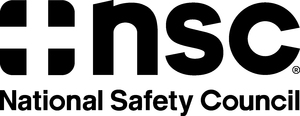Honoring lifesaving contributions and service to safety
ORLANDO, Fla., Oct. 22, 2012 /PRNewswire-USNewswire/ -- The National Safety Council, celebrating 100 years of safety, has recognized the Honorable Elizabeth Dole with the Council's Flame of Life Award as one of the century's foremost leaders in safety. The award, which recognizes significant lifesaving contributions to safety, has only been awarded three times. Dole's leadership of safety initiatives throughout every stage of her career makes her a giant in the history of safety.
(Photo: http://photos.prnewswire.com/prnh/20121022/DC96932 )
(Logo: http://photos.prnewswire.com/prnh/20120705/DC35658LOGO )
As Secretary of Transportation from 1983-1987, she influenced President Reagan and Congress to enact the 21-year old drinking age. Passage of this uniform drinking age eliminated "blood borders" where young people were killed or gravely injured returning from a neighbor state with a lower drinking age. At virtually the same time, she issued a landmark regulation which resulted in widespread enactment of state safety belt laws and air bags in all cars. Not a single state at the time had passed a safety belt law, usage was 13%, and air bags were virtually non-existent. These three actions have saved nearly 400,000 lives to date with an estimated 20,000 lives saved each coming year.
During Dole's tenure as Secretary of Labor from 1989-1990, she continued to make safety and health leadership her hallmark. Among the many OSHA actions under her guidance were the Lockout-Tagout Standard, which established procedures to safeguard more than 39 million workers and prevent an estimated 120 fatalities and 50,000 injuries each year. Under her leadership, OSHA addressed the important issue of ergonomics and promulgated a stronger rule to protect construction workers from the hazards of working in trenches and excavations. Since issuing the rule, trenching fatalities have declined by 40 percent. A major new regulation to protect workers against blood-borne pathogens, such as AIDS and Hepatitis B, was DOL's first time in history to deal with a biological hazard or infectious disease. Among her major initiatives with the Mine Safety and Health Administration was the "Patterns Rule," which sought to crack down on repeated serious violations.
As President of the American Red Cross from 1991-1999, Dole directed the work of 32,000 staff members and 1.3 million volunteers. She led a massive transformation of the way the Red Cross collects, tests and distributes one-half of the nation's blood supply. It was a seven year effort designed to move antiquated World War II-era blood bank practices to a centralized state-of-the-art system with standard operating procedures. It involved integrating 28 different computer systems into a central operation, and replacing 53 testing laboratories with 8 new high-tech labs to ensure that blood is safe to give and safe to get.
Among her many accomplishments as the first woman United States Senator from North Carolina from 2003-2009, she strongly supported 2005 Highway Act provisions that gave major incentives to states to upgrade their safety belt laws. Find a more expansive list of her career safety accomplishments here.
"Elizabeth Dole's career is filled with impactful examples of strategies put in place to save lives and prevent injuries," said Janet Froetscher, president and CEO of NSC. "Dole is one of the century's foremost safety leaders. Her leadership has played a crucial role in the safety movement and is an inspiration for all those who dedicate their lives to keeping others safe and well."
Dole joins an elite group of safety leaders who have been honored with the Flame of Life Award. In 1971, the award was given to the Ad Council for its focus on raising awareness about traffic safety. In 2006, the award was presented to seven principal leaders of the Air Bag and Seat Belt Safety Campaign for their work in saving lives associated with air bags and safety belt use, which included taking "Click it or Ticket" and the concept of high visibility enforcement of traffic laws from a one-state pilot program to a national initiative. In 2010, the NSC Chairman of the Board at that time, Joseph Ucciferro, was given the award for leading the development of a new NSC strategy that defined how to save an additional 10,000 lives and prevent 1 million injuries by 2014.
About the National Safety Council
Founded in 1913 and chartered by Congress, the National Safety Council (nsc.org) is a nonprofit organization whose mission is to save lives by preventing injuries and deaths at work, in homes and communities, and on the road through leadership, research, education and advocacy. NSC advances this mission by partnering with businesses, government agencies, elected officials and the public in areas where we can make the most impact -- distracted driving, teen driving, workplace safety and safety beyond the workplace.
Connect with NSC:
Facebook
Twitter
LinkedIn
YouTube
SOURCE National Safety Council
WANT YOUR COMPANY'S NEWS FEATURED ON PRNEWSWIRE.COM?
Newsrooms &
Influencers
Digital Media
Outlets
Journalists
Opted In





Share this article